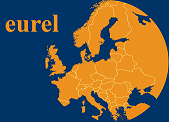The local regulation of religious diversity in France is far from the purported unitary “credo républicain” (Lamine 2004: 5). While controversies over the use of religious symbols in the public sphere have been recurrent in France in the last decades and “assertive secularism” (Kuru 2009) that aims at privatizing religious expressions has imposed itself at the national level, initiatives aiming at recognising ethnic and religious differences at the local level are spreading in a number of cities.
As suggested by Barras (2014: 4), secularism or laïcité can take different forms in different historical periods and should not be adopted just as separation of religion and politics, as something fixed, but rather conceive of it as a “powerful mode of governance that shapes the boundaries of what is religiously acceptable”. Drawing on ethnographic fieldwork conducted in one city (and predictably one more) in France, this paper investigates the approach towards religious diversity adopted by local actors. The main aim is to analyse how is secularism being re-shaped at the local level by looking at the negotiations surrounding religious diversity issues. Interviews with various local actors and participant observation of the meetings of a local consultative committee provide a comprehensive account of the situation and allow disentangling the underlying factors. All these discussions are particularly relevant in the aftermath of the Charlie Hebdo and 13N attacks in Paris and in a context of decentralization of the state and development of local governance structures. Therefore, particular attention will be devoted to: a) the narratives about laïcité, national identity and social cohesion (vivre ensemble); and b) the actors involved as partners in local networks shaping, among other things, local responses to migration-led diversity.
- Poster
- Other

 PDF version
PDF version

